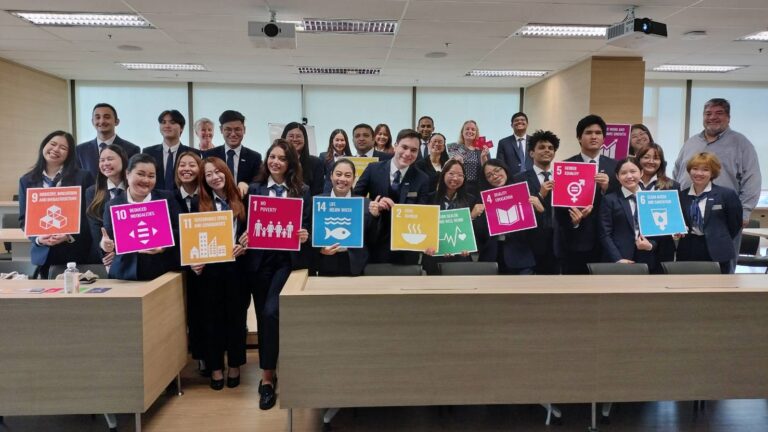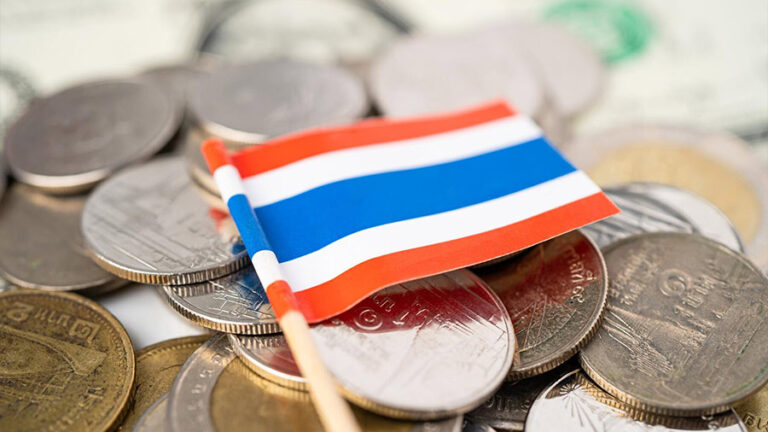Discover the Secrets to Hiring Top Translators in Thailand
In this article, we will uncover the hidden strategies to recruiting top-notch translators in Thailand. By understanding the crucial elements that contribute to the selection process, such as language proficiency, industry expertise, and educational backgrounds, you can make informed decisions when hiring translators.
We will also delve into evaluating the quality of translations through sample works and discuss the importance of specialization in specific areas.
Additionally, we will explore the agreement process and service models, ensuring successful translation projects.
Key Takeaways
- Experience is more important than educational background when hiring a translator in Thailand.
- Specialize in translators who have experience in the specific type of work you need to be translated.
- Request a sample or test translation to evaluate the translator's skills.
- Contracts are important for projects involving significant time and money.
The Importance of Experience in Hiring Translators
When hiring translators, it is crucial to prioritize experience over educational background. While educational qualifications are important, they do not necessarily guarantee proficiency in translation.
Translators in Thailand come from various backgrounds such as language, law, medicine, engineering, and international universities. However, what truly matters is the translator's experience in the field of translation.
Requesting a sample of past translation or asking for a test translation can help assess the quality of their work. It is also worth considering hiring a translator with less experience if they are able to produce high-quality translations at a lower rate.
Specializing in translators who have experience in the specific type of work that needs to be translated is also recommended.
Evaluating the Quality of Translations
One effective way to evaluate the quality of translations is by requesting feedback from clients who have previously worked with the translators. Feedback from clients can provide valuable insights into the accuracy, fluency, and overall quality of the translations.
Additionally, it is important to consider the specific requirements of the project and assess whether the translator has met those requirements. This can include evaluating the translator's ability to understand and convey the intended meaning, adhere to any style or formatting guidelines, and meet the deadline.
It is also helpful to review samples of the translator's previous work or request a test translation to assess their skills and proficiency in the desired language pair.
Specializing in Translators With Relevant Experience
Specializing in translators experienced in the specific type of work you need to be translated is essential for ensuring accurate and high-quality translations. When hiring translators in Thailand, it is important to consider their relevant experience in order to achieve the best results. Here are four reasons why specializing in translators with relevant experience is crucial:
- Industry-specific knowledge: Translators with experience in your industry will be familiar with the terminology, technical jargon, and specific nuances of the subject matter, ensuring accurate and precise translations.
- Cultural understanding: Translators who have worked on similar projects will have a deeper understanding of the cultural context surrounding the content, allowing them to provide culturally appropriate translations.
- Familiarity with specific document types: Different types of documents require different translation approaches. Specialized translators will have experience translating similar documents, ensuring they follow the appropriate style and format.
- Enhanced efficiency: Translators with relevant experience will be more efficient in their work, as they will already be familiar with the subject matter and the challenges that may arise during the translation process.
The Role of Education in Hiring Translators
Although educational background is not as important as experience when hiring translators, it can still play a significant role in determining their skills and qualifications.
Translators in Thailand come from various backgrounds, including language, law, medicine, engineering, and international universities. While graduating from a language faculty is common among translators, individuals with other backgrounds can also bring valuable knowledge and expertise to the translation process.
Additionally, some translators have taken translation courses from the Thai Translator and Interpreter Association of Thailand.
Although experience remains the primary factor in selecting a translator, considering their educational background can provide insight into their specialized knowledge and understanding of specific subjects, which can be advantageous for certain translation projects.
Translation Courses and Associations in Thailand
Many translators in Thailand have completed translation courses and are members of professional associations, such as the Thai Translator and Interpreter Association, which enhances their skills and expertise in the field. These courses and associations play a crucial role in the professional development of translators.
Here are some key points regarding translation courses and associations in Thailand:
- Thai Translator and Interpreter Association (TTIA): This association provides training programs, workshops, and seminars to help translators improve their language skills and stay updated with industry trends.
- Translation Courses: Several universities and language institutes in Thailand offer translation courses that cover various aspects of translation, including theory, practice, and specialized subjects.
- Continuing Professional Development (CPD): Translators are encouraged to participate in CPD activities, such as conferences and webinars, to enhance their knowledge and stay connected with the translation community.
- Networking Opportunities: Translation associations in Thailand organize networking events, allowing translators to connect with peers, share experiences, and build professional relationships.
Negotiating Agreements and Contracts With Translators
To ensure a smooth working relationship, it is important to establish clear agreements and contracts with translators when hiring their services. Negotiating agreements and contracts with translators is crucial to ensure that both parties are on the same page regarding the terms and conditions of the translation project.
The agreement should include details such as the rate of payment, delivery date, and method of delivery. In addition, it is important to discuss any additional points that may be relevant to the project, such as revision requests, cancellation policies, and confidentiality agreements.
While formal contracts are not always necessary for hiring a translator in Thailand, they are highly recommended for projects involving significant time and money. Both parties should sign the contract to validate the agreement and protect their interests.
Managing Revisions and Proofreading in Translation Projects
Effective management of revisions and proofreading is essential in ensuring the quality and accuracy of translation projects. To successfully manage revisions and proofreading, consider the following:
- Establish clear guidelines: Clearly communicate your expectations for revisions and proofreading to the translator. Provide specific instructions on the level of revisions allowed and the desired proofreading standards.
- Set realistic timelines: Agree upon reasonable deadlines for revisions and proofreading. Allow sufficient time for the translator to make revisions and for the proofreader to thoroughly review the translated content.
- Collaborate with the translator: Maintain open communication with the translator throughout the revision and proofreading process. Address any questions or concerns promptly to ensure a smooth workflow.
- Utilize professional proofreaders: Hire experienced proofreaders who are proficient in the target language to review the translated content. Their expertise can help identify any errors or inconsistencies that may have been missed during the initial translation process.
The Use of Verbal Agreements and Contracts in Hiring Translators
When hiring translators in Thailand, it is important to establish clear verbal agreements or contracts to ensure a smooth and professional working relationship. Verbal agreements are common, especially for short documents, while contracts are important for projects involving significant time and money. Contracts should include details about the rate, deadline, payment method, revisions, cancellation, confidentiality, and copyright. Both parties should sign the contract for it to be legally binding. To provide a clearer understanding, here is a table summarizing the key points to include in a contract:
| Key Points to Include in a Contract |
|---|
| Rate |
| Deadline |
| Payment Method |
| Revisions |
| Cancellation |
| Confidentiality |
| Copyright |
Understanding Service Models and Rates in Translation
The service models and rates in translation are essential aspects to understand when hiring top translators in Thailand. To help you navigate this aspect of translation services, here are four key points to consider:
- Pay-per-page model: This model is commonly used for translating from Thai to English. A page is typically defined as around 1,800 characters or 400 words. Translators may charge extra for tasks like table formatting.
- Pay-per-word model: This model is still applicable for Thai translations. Word count can be done using Microsoft Word or Pages for Mac. Rates can be influenced by factors such as translation difficulty, delivery speed, and additional work.
- Media translations: For dialogues and subtitles in TV shows, rates are usually set per minute. However, if script files are available, the pay-per-word model may be used.
- Pay-per-hour rate: This model is used for assignments that are difficult to calculate by page, word, or minute. It is based on the estimated number of hours required to complete the translation.
Understanding these service models and rates will enable you to make informed decisions when hiring translators in Thailand.
General and Technical Translation Rates in Thailand
Experienced translators in Thailand typically charge a starting rate of 1 baht per word for general translation services. This rate applies to general articles and documents that do not contain many technical terms. However, the rate may vary depending on the complexity of the content.
In comparison, technical translation rates can be higher, especially for technical articles such as scientific, medical, and engineering manuals. These rates can reach up to 2 baht per word or even higher, depending on the specific technical field and the level of difficulty involved.
It's important to note that general translation rates are generally lower than technical translation rates. When considering translation services in Thailand, it's essential to factor in the specific requirements of your project and budget accordingly.
Frequently Asked Questions
How Can I Ensure That the Translator I Hire Has Relevant Experience in the Specific Type of Work I Need to Be Translated?
When hiring a translator in Thailand, it is essential to ensure that they have relevant experience in the specific type of work you need to be translated. Request samples or test translations to evaluate their skills before making a decision.
Are There Any Resources or Associations in Thailand That Provide Translation Courses or Training?
Yes, there are resources and associations in Thailand that provide translation courses or training. For example, the Thai Translator and Interpreter Association of Thailand offers translation courses and certification programs for aspiring translators.
What Factors Can Affect the Rates Charged by Translators in Thailand?
Factors that can affect translator rates in Thailand include the type of translation (general or technical), the level of difficulty, delivery speed, additional work like formatting, and certification or legalization requirements.
Are There Any Specific Rates for Translating Media Content, Such as Dialogues and Subtitles for TV Shows?
Rates for translating media content, such as dialogues and subtitles for TV shows, in Thailand are usually calculated on a per-minute basis, with rates set at around 40 baht per minute. However, rates may vary depending on the specific project and agreement between the translator and client.
What Are the Typical Rates for Technical Translation Projects in Thailand?
Typical rates for technical translation projects in Thailand vary depending on the level of difficulty and the specific technical field. Rates can range from 2 baht per word or higher, reflecting the complexity and specialization required for translating technical content.
Conclusion
In conclusion, hiring top translators in Thailand requires considering factors such as experience, specialization, and quality evaluation.
While educational background is important, experience often takes precedence in selecting the best candidates.
Verbal agreements and contracts play a crucial role in ensuring a smooth hiring process.
Understanding service models and rates, including general and technical translation rates, is also essential.
By following these guidelines, you can make informed decisions and achieve successful translation projects in Thailand.







